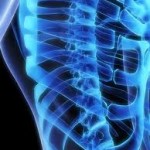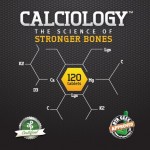
I peaked around the corner, waiting for the signal through the darkness. I tried to keep my breath steady, but my heart raced like I’d just outran the cops. Or, maybe in anticipation of that being a possibility in the very near future.
Two quick flashes of light pierced the night. My signal.
I darted across the lawn, stopping when I reached the back of the dark gray Camaro parked in the driveway near a white picket fence. I crouched down beside the blonde who waited there for me – the giver of signals. She held a finger up to her lips as a reminder to be as quiet and covert as possible, handed me one of the rolls of plastic wrap we’d purchased earlier that day, and motioned for me to move to the side of the car. We commenced to wrap the entire Camaro in plastic food wrap, tires and all. Four (very large) rolls of it to be precise. I won’t get into why, but let’s just say sometimes the ex deserves a little inconvenience.
I wouldn’t have been able to pull it off so quickly and stealthily without my trusty sidekick. She was fundamental in the execution of the mission. There’s no way I could have thrown those rolls of wrap to myself over the top of the car without making too much noise and ultimately finding myself giving an explanation of my actions to man in blue. She’s my Watson. Okay, that would make me Sherlock Holmes and that might be a bit of a stretch. Maybe Lucy and Ethel is a more believable comparison.
The point is, I needed her. I could have done it without her, but it wouldn’t have been as much fun (not that vandalism is fun boys and girls) and I wouldn’t have been as effective. Just like any Main Character (MC) you know wouldn’t be anywhere near as effective without their sidekicks. Because the sidekick plays an integral role and sometimes a role more essential than that of the MC.
Calcium and Vitamin K are much the same way.
First, let’s look at why we need Calcium.
Calcium is the key mineral found in our bones and teeth that, along with other nutrients, builds the hard structure that makes them strong. Calcium is needed for proper muscle and nerve function, blood clotting, and other body functions. Functions so vital that our bodies pull Calcium from our bones just to maintain normal blood Calcium levels if we don’t take in enough Calcium in our diets. And since studies continually demonstrate that most of us don’t get enough Calcium in our diets, supplementing (along with exercising) is a key to reversing the risk of osteoporosis.
So, why does Calcium need Vitamin K?
K vitamins are quite unique. They are widely known for their blood clotting abilities. However, Vitamin K2 as been extensively recognized as being most advantageous for the body to use Calcium in order to build healthy, strong bones and to reduce Calcium deposits in the arteries.
You see, Vitamin K triggers certain proteins in the body (such as osteocalcin in the bones, Matrix Gla Protein (MGP) in the arteries and clotting factors in the liver) that are dependent on Vitamin K in order to bond Calcium to the surface of bones, deter Calcium deposits in arteries, and help clot blood.
So, essentially, a lack of Vitamin K (especially a lack of Vitamin K2 ) could result in what is known as the “Calcium Paradox” where too little Calcium isn’t good because it means weak bones and too much Calcium will build up in the arteries making them stiff and inflexible, which obstructs blood flow to and from the heart.
Rag-Tag Research Geek Recommendation
So clearly, your bone strength depends on more than just Calcium. It needs a little help from its sidekick, Vitamin K, to help your body move it, absorb it, get it to your bones, and get it out of your blood vessels so that you can have a healthier body and a healthier life.
The Calciology™ & Foundation™ Combo delivers 500 mcg of Vitamin K2 per day, along with other synergistic ingredients for maximum bioutility.










